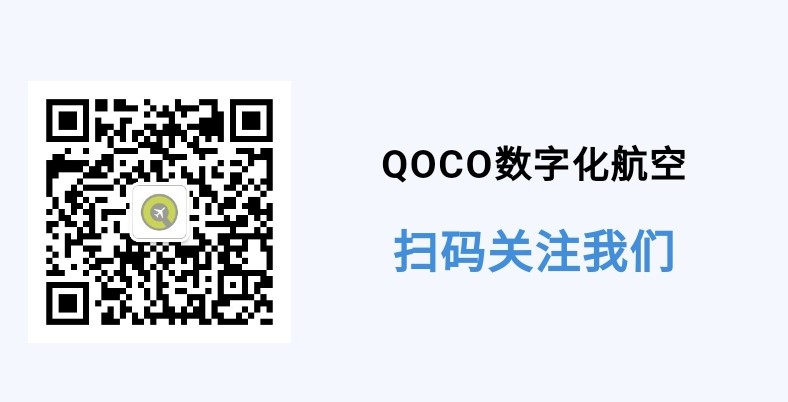WeChat’s Mini Programs can facilitate e-commerce functionality on WeChat and is amongst the most popular in China for social commerce. The platform facilitated transactions worth an estimated 1.6 trillion yuan ($250 billion) last year, doubling year on year growth.
WeChat hosts over 2 million Mini Programs, compared to Apple App Store’s 1.96 million and Google Play Store’s 2.87 million. This platform has rapidly established itself as a highly effective low-cost route to reaching the China market.
Regroup China has been building WeChat mini programs for many European luxury and high street retailers as well as food and drink brands and developing booking capabilities for the student property market.
China accounted for around 50% of global online retail sales in 2022! As China’s online population is set to increase, this figure will only go up and selling to WeChat’s rapidly-growing audience will become ever more important.
Join Regroup in a Webinar on Thursday 19th October, at 11am BST on how to set up and use a WeChat mini program to establish a direct sales route to the world’s largest online market. Click here for further details
Fintiba is the market leader in the blocked account space for international students who want to come to Germany. As an international Fintech-Hybrid located in the heart of Frankfurt am Main in Germany, Fintiba offers innovative online solutions for international students and expats who want to work or study in Germany. It is the first point of contact and trusted partner for anyone who is at the start of their journey to Germany.
Fintiba has partnered with Regroup China to build social media marketing on Little Red and Douyin and a dedicated Chinese web presence at https://www.fintiba.com.cn/. This localized platform ensures a seamless experience for Chinese users, providing them with comprehensive information, resources, and services tailored to their unique needs.
Stay tuned for more updates and exciting opportunities as Fintiba continues to revolutionize the way international students and employees embark on their German adventure.
Planning to establish an online presence in China?
Join our exclusive webinar discussing the complexities of establishing an online presence in China.
Our experts will cover #PIPL, #SEO, and #PPC for #Baidu and discuss #regulations governing #data protection, privacy, and site speed in China. With keynote speakers Richie He, Business Advisory Assistant Manager of Dezan Shira & Associates and Scott Muir, Director and Founder of Regroup China, you’ll gain valuable insights into:
➡️Personal Information (#PI) protection➡️Privacy notices➡️SEO protocol for China➡️Baidu’s paid search
?Save your seat and register now:
The ILFORD Photo name is an iconic one in the world of photography. Their renowned black and white photography products provide the highest quality, drawing on 140 years of experience.
The launch of their first Chinese web site at https://ilfordphoto.com.cn/ is a key building block to reaching the wider audience in China.
Michelle Parr At ILFORD Photo stated:
Working with Regroup, having their local knowledge of the Chinese market, culture and social channels alongside that of our distributor in China has meant that we’ve ended up with a website that we are proud to put the ILFORD Photo name to.
China, the world’s largest e-commerce market in sales, belonged to the innovators, the passionate and the adventurous in 2022, and their consumption behavior offers a roadmap for the year ahead.
Roughly 1 billion local consumers shopped on e-commerce channels across China in 2022, racking up 45.3% of all retail sales online, research firm Insider Intelligence found.
Among the key categories, outdoor sports and pet care in China grew beyond niche communities, while virtual influencers and the metaverse showed potential to transform online retail.
The growing purchasing power of Generation Z consumers underpinned growth in all these areas, powering the rise of categories such as collectible toys to non-alcoholic beverages.
The fast pace of change in China means staying abreast of trends is crucial for any brand and retailer to excel in the country’s e-commerce market.
We drew on insights from Alibaba Group’s ecosystem and consulted e-commerce experts and entrepreneurs to identify the top five emerging e-commerce trends that could gain traction in 2023.
#5: The Great Outdoors

Skateboarding influencer Elon Shi riding high this year as sports craze hits China. Photo credit: Elon Shi
Chinese outdoors enthusiasts took to the ski slopes en masse and went camping in droves through 2022.
Travel restrictions and the Winter Olympics in Beijing drove young consumers outdoors, feeding a winter sports boom.
Sales of winter sports equipment rose 300% on Alibaba’s e-commerce marketplace Tmall between Jan. 31 and Feb. 4, including a 180% jump in skiing gear. Outdoor gear and camping sales on Tmall doubled in March compared with the same time last year.
“Most consumers are in [it] for the experience and for pleasure, rather than regarding it as a competitive professional sport,” said Wang Xiaoyuan, an industry representative of the outdoor sports category at Tmall.
Flying discs take to the air over China
Activities that build social connections are trending. Flying disc players in China grew to around 500,000 in 2021 from a mere 100 in 2008.
During the last mid-year shopping festival in June known as 6.18, over a dozen international brands, including American board brands Carver and Santa Cruz, said they would enter China with the help of Tmall Global, Alibaba’s cross-border e-commerce platform.
In the year ahead, we expect brands to double down on the China market and digitize to serve outdoor enthusiasts.
#4: Fur Babies Get All The Love

Chinese consumers are taking their fur babies on outdoor adventures. Photo credit: Alibaba Group
Pet ownership is changing in China as consumers treat their furry companions more like small children, right down to specially made clothing and tech devices.
Pet food brands on Tmall recorded a three-digit growth year-on-year in their gross merchandising value (GMV), during the first checkout period of the 11.11 Global Shopping Festival, also known as Double 11, in November.
“The younger generation of Chinese pet owners view pets as their children,” said Xiao Zhiyong, an industry representative of the pet category at Alibaba’s online marketplace Taobao.
Younger consumers in China are also investing in digital gadgets such as intelligent pet bowls that track pets’ eating habits and companion robots that keep pets company when their owners are away.
Pet brands Instinct grows on Tmall Global
And of course, Chinese consumers are feeding their fur babies only the best. Missouri-based pet food brand Instinct is riding this wave and has doubled its business in China over the last three years.
In the year ahead, we expect more brands to offer services and products to feed pet owners’ hunger for knowledge, following in the tracks of French pet food specialist Royal Canin, which offers consumers virtual one-on-one consultations with animal experts.
#3: Metaverse, Give Me More

Consumers can browse 3D luxury goods on Tmall Luxury Pavilion. Photo credit: Alibaba Group
The metaverse expanded in 2022, and fashion companies explored its potential from digital collectibles to virtual try-on services.
Alibaba’s ecosystem allows consumers to explore brands through game-like experiences, browse digital showrooms in personalized avatars, try on clothing, and shop collectible tokens.
“The digital world can provide consumers with the same, or even better, shopping experiences and luxury-brand identities than in the real world,” said Janet Wang, head of Alibaba’s luxury division.
DAMO Academy launches an XR-powered marketplace on Alibaba’s Tmall and Taobao
Digital collectibles emerged in 2022 as a must-have technology for brands to build a community of followers in the metaverse and real life.
Since late 2021, nearly two dozen luxury brands have released 37 digital collections on Alibaba’s Tmall Luxury Pavilion, and thousands of consumers have purchased them.
In the year ahead, we expect more retailers than ever to leverage this arsenal of digital tools to engage consumers and develop products, like British luxury brand Burberry, which created a private digital salon for coat shopping on Tmall Luxury Pavilion.
By 2026, a quarter of consumers will spend at least one hour a day in the metaverse for work, shopping, education, social or entertainment, according to Gartner’s prediction.
#2: Gen Z Shoppers, a Must-Win Battle

Gen Z adore collectible toys in China and other niche categories. Photo credit: Shutterstock
Generation Z shoppers, born between 1996 and 2010, account for around 15% of China’s population as of 2021, but have an oversized influence on consumption trends.
As one of the fastest-growing consumer cohorts on China’s e-commerce platforms, zoomers accounted for close to two-thirds of consumers on Tmall Global in 2022 and over 17% on Tmall Luxury Pavilion.
Their spending power is on the rise. In 2022, the total number of luxury gifts purchased by consumers born after 1995 surpassed those born after 1985 for the first time on Tmall Luxury Pavilion.
They are also more willing to pay for experiences and have a greater desire to stand out from the crowd, transforming what were once considered niche categories into mainstream juggernauts, such as skateboarding and non-alcoholic drinks.
“The emerging Gen Z cohort values individuality higher, and they spend more on enjoying themselves,” said Tmall Global’s General Manager Lynn Dong.
Close to two-thirds of consumers on Tmall Global belong to Gen Z
Retailers are tapping Alibaba’s product development arm Tmall Innovation Center to accelerate product roll-out for Gen Zers who want to “buy products on the go.”
Gen Zers are also driving the rage behind collectible toys in China. They gather to show off the latest hauls and swap tips on trends, even attracting prominent investors such as the venture capital firm Sequoia China.
#1: Virtual Influencers, Here to Stay

Brands are tapping virtual influencers as digital ambassadors. Photo credit: Alibaba Group
In 2022, AI-powered digital creations gained celebrity status as they strutted down virtual catwalks, were projected onto the stages of dance competitions and held livestream sessions.
Chinese brands tapped these virtual idols to build their profiles and amass followers among the country’s digitally-native consumers.
Virtual influencers will become more commonplace in the year ahead, according to market research firm Forrester. It predicts that a fifth of B2C brands in China will use digital idols to improve consumers’ shopping experiences in 2023.
“You might have a bunch of virtual idols, a sporty one, a serious one, a fashionable one and an artsy one to try and appeal to different target audiences,” said Mark Tanner, founder of Shanghai-based agency China Skinny.
They’ve taken over customer service on e-commerce platforms. In February, Alibaba launched a digital influencer named Dong Dong to assist consumers during the Beijing Winter Olympics.
Alibaba’s virtual influencer Dong Dong debuts at the Olympic Games
Tech advances have increased engagement by allowing virtual influencers to appear in livestreams alongside real people.
Alibaba’s male virtual idol Noah appeared in a brand livestream by American fashion house Tommy Hilfiger in September, nearly quadrupling the brand’s daily gross merchandise value compared with an average day.
Content sourced from https://www.alizila.com/
Finland-based QOCO Systems enables operational excellence and efficiency in the aviation industry with disruptive SaaS solutions. Regroup have come onboard to develop QOCO’s digital presence in the China market, the world’s leading aviation market, with the launch of a dedicated Chinese web site – https://www.qocoaero.cn/ and WeChat account.

Regroup proved to be a great partner, providing us with an excellent experience! Their professionalism, expertise and eagerness to help QOCO grow in the Chinese market made them a trusted partner. We look forward to furthering our collaboration and creating successful projects together. With their knowledgeable guidance on navigating China’s unique business landscape, we feel confident that partnering up with Regroup will ensure success for any endeavor.

Key Seasonal Dates to consider in China, 2023.
Contact us at info@regroup-china.com to reach the world’s largest online market.







Pioneering British skincare brand Emma Hardie has launched a new multi-channel strategy in the Chinese market this Autumn, partnering with Regroup China. Emma Hardie’s new TMall Global flagship store and WeChat mini-program store went live in September, and are soon to be followed by flagship stores on JD.com and Douyin, all of which are sure to go down well with the brand’s passionate legion of followers in China.
The Regroup China team has also launched the brand across a range of Chinese social media channels, managing content on WeChat and Little Red Book, featuring influential beauty bloggers, adding to the buzz around products such as Emma Hardie’s multi-award-winning Moringa Balm, with personal reviews and beauty tips.
Regroup are also managing live-streaming events featuring established beauty KOL names during the run up to this year’s all-important Single’s Day shopping festival on 11 November.
With sales growing daily, we’re excited to see what the future holds for Emma Hardie in China!




WeChat store:

